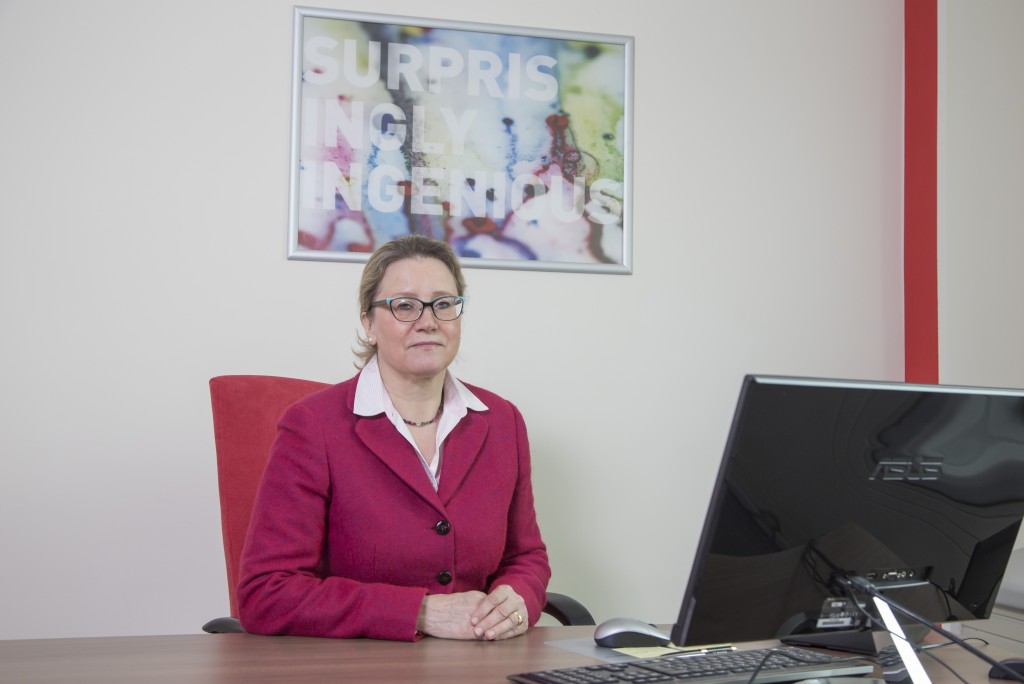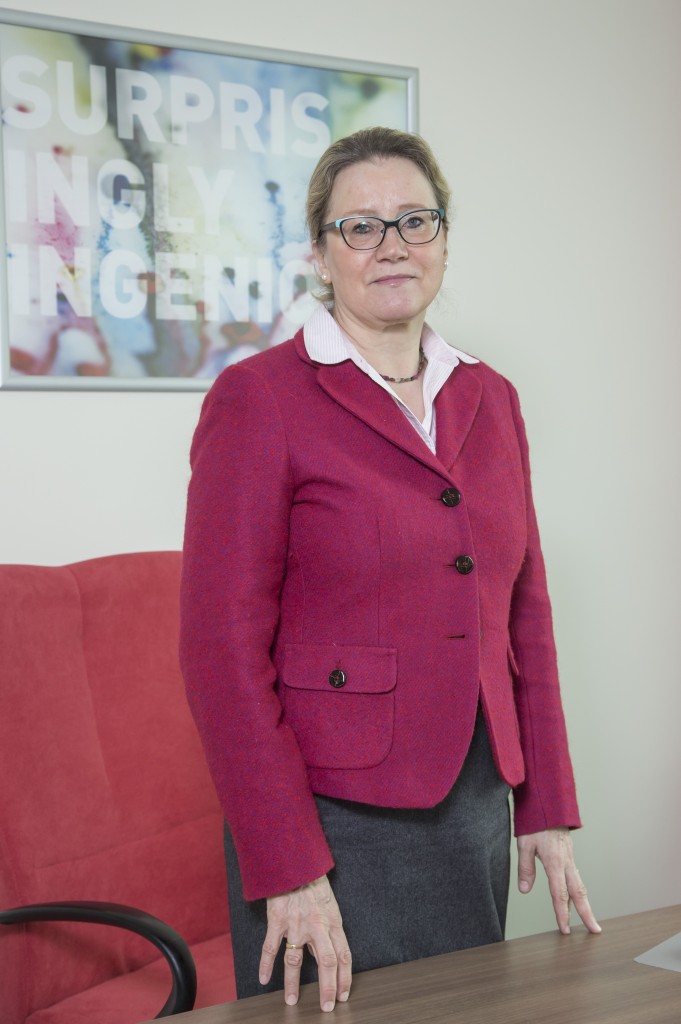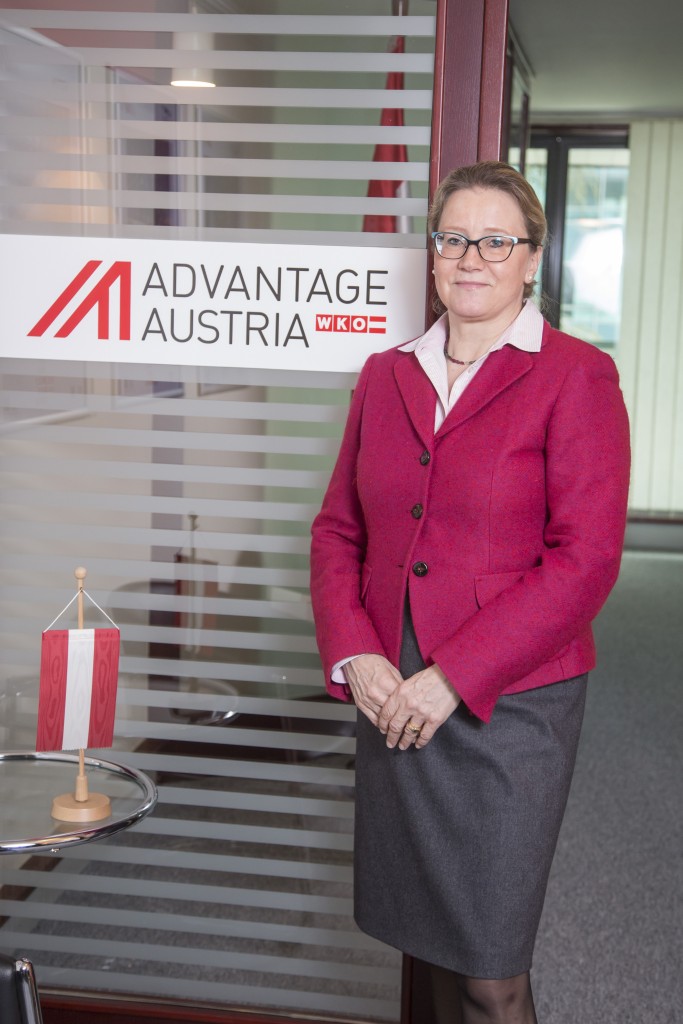Serbia needs sustainable economic growth and a developing, diversified local economy in order to attract more interest from investors. Current reforms are heading in the right direction and are appreciated by Austrian companies operating in Serbia, but there is room for improvement.
Austria is today the largest investor in Serbia, with a volume of approximately €2.8 billion.The two countries’ bilateral trade volume is growing at impressive rates and in 2015reached almost €800 million.
With 450 companies operating in Serbia, and more to come – as stated during February’s presentation of the cooperation action plan for 2016, in the presence of Austrian Foreign Minister Sebastian Kurz, President of the Austrian Federal Economic ChamberChristoph Leitl, and Serbian Prime Minister AleksandarVučić –the schedule of ErikaTeoman-Brenner, Austrian Commercial Counsellor in Belgrade, is a busy one.
“We are indeed planning a series of meetings and events that will hopefully increase commercial contacts and create new business partnerships between companies from our two countries”, says Teoman-Brenner, speaking in this interview for D&C.
Mentioning just the few activities starting in April, Serbian building and construction sector companies are heading to Vienna to participate in the “Future of Building” conference, while a business delegation of 20 company representatives from the province of Carinthia is set to visit Serbia that same month. “We are quite confident that our activities will improve the already very strong economic and commercial relations between our two countries”, says the Austrian commercial counsellor.
As stated during the visit of Minister Kurz,Austria intends to further build on its position of being the leading foreign investor in Serbia, and to support implementation of the reform agenda, especially when it comes to cutting red tape and improving legal security in order to improve the investment climate.
There is obviously room for further improvement.
Austrian companies operating in Serbia see some progress in the business climate, especially when it comes to the reform of the construction and labour laws and some legal and administrative procedures. However, reforms are not being implemented equally at all levels of bureaucracy and in daily business activities,which means Austrian companies are still dealing with obstacles. Payment practices, corruption levels and the tax administration are areas where Austrian companies would greatly appreciate more effective measures.
In the long term, reforms that are in line with EU standards will bring prosperity and benefit both foreign and domestic investors,as well as the people of Serbia. “It was emphasised by both MrLeitl and Minister Kurz that Austria stands by Serbia in its efforts to join the EU,” says Teoman-Brenner. The business community has an important role to play in the EU integration process, as she points out, and a strong chamber based on obligatory membershipisan important precondition for ensuring the business community has a voice in this process. The Austrian Federal Economic Chamber has been a partner ofthe Serbian Chamber of Commerce and Industry and a model forits modernisation process.
How do you assess the business environment in Serbia? How Austrian friendly it is?
After barely six months here in Serbia, and after having talked to many Austrian business representatives in the country, I feel that Austrian companies are definitely very welcome here, but so are others, since investments are obviously greatly appreciated and needed. In general, our companies see improvements in certain areas of the investors’ climate, particularly due to the widely-praised reforms of the construction and labour laws, andother legal and administrative improvements. However, the realities of daily business life sometimes show that the willingness to implement these reforms has not always reached all levels of bureaucracy. However, in my opinion, more than anything else, Serbia needs sustainable economic growth and a developing and diversified local economy. That, in turn, will attract more interest from investors – be they domestic or foreign – and increase demand through consumption and investments.
In that respect, what do you see as the main message relayed by Messrs Leitland Kurzto the Austrian-Serbian community in Serbia during their recent visit to Serbia?
It was emphasised by both MrLeitl and Minister Kurz that Austria stands by Serbia in its efforts to join the EU. We all know that it will not be easy, but in the long run the reform process will benefit Serbia and the Serbian people. In this regard, MrLeitlonce again pointed out, as he has done in the past, that a strong chamber based on mandatory membership is the only guarantee for the business community to have a voice in this process, both at the national level and, perhaps even more importantly, at the European level.
What has fourth survey of Austrian companies operating in Serbia told you about their overall level of satisfaction?
We were very pleased to see an improvement in their overall satisfaction. However, there is still room for improvement.
Which areas do companies most often mentionwhen it comes to the greatest room for improvement?
We see that companies are still concerned about poor payment practices and the level of corruption. Bureaucracy, and in particular the tax administration,also continue to be areas where companies are rather dissatisfied with the progressso far achieved.
How do you explain the fact that, in terms of the availability and quality of the workforce, Serbia scored worse this time than in the previous survey, despite doubling its efforts to open schools up to the dual education model?
Frankly, we do not see this outcome in our data. There is only a very small, statistically insignificant deviation from the results of the previous survey. It is, however, important to emphasisethat the availability of a qualified workforce is indeed one of the most important criteria when it comes to investment decisions, hence we very much welcome any effortsexerted by Serbia to strengthen the dual vocational training system.
It is often heard that some foreign banks operating in Serbia are considering withdrawing from the market. Do you think that could also be the case with some Austrian banks?
Definitely not!
According to your agenda for 2016, we can expect a lot of Austrian companies to come to Serbia. Which of these events would you emphasise as being the most important to the further development of bilateral business relations?
We are indeed planning a series of meetings and events that will hopefully increase commercial contacts and create new business partnerships between companies from our two countries. Just to mention one: this year is the first timethat we will participate in the International Technical Fair in Belgrade with an official Austrian group exhibit. We are also continuing our efforts to attract Serbian students to Austria’s higher education institutions,within the framework of EDUFAIR 2016. It might be interesting for your readership to know that we are inviting Serbian companies from the building and construction sector to come to Vienna in April to participate in our “Future of Building” conference, which will include B2B meetings and site visits to outstanding projects in Vienna and the surrounding area. Furthermore, we are expecting a business delegation with representatives of more than 20 companies from the province of Carinthia in April– so, all in all, we are quite confident that our activities will improve what are already very strong economic and commercial relations between our two countries.
Following the Zumtobel Group’s decision to donate LED street lighting for one street each in Belgrade and Niš, do you see an opening up of the space for further cooperation between Austrian companies working in the area of “Smart Cities” and Serbian local authorities?
This is indeed a very positive initiative that highlights the impressive knowhow of a leading supplier of lighting solutions. In order for others to follow, it is certainly necessary to build business cases that ensure investments in the area of “smart cities” are beneficial for all sides.


